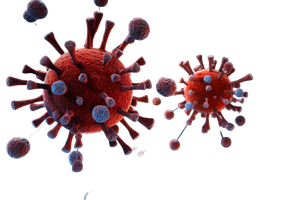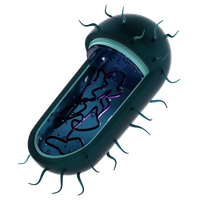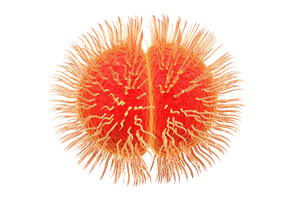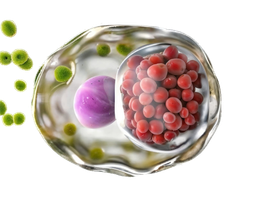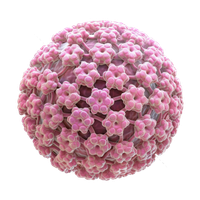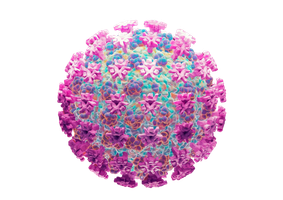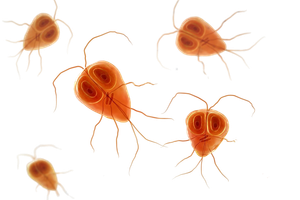What is an STI (sexually transmitted infection)
An STI sexually transmitted infection is an infection that is most often passed on through sexual contact vaginal anal or oral sex STIs can be caused by bacteria viruses or parasites Examples include chlamydia gonorrhoea syphilis HPV human papillomavirus herpes and HIV
But not all STIs are transmitted only through sex Some infections can also be passed from mother to child during birth or through infected blood and unsafe medical instruments such as needles
The difficulty is that many STIs cause no symptoms at first A person may be infected and spread the infection without realising it That is why regular testing is important especially for people who are sexually active or have multiple partners The World Health Organization WHO stresses the importance of early detection as this helps with prompt treatment and prevents further spread
If left untreated STIs can lead to serious complications such as infertility chronic inflammation ectopic pregnancy or an increased risk of HIV The good news is that many STIs are treatable or manageable particularly when detected early
Prevention is better than cure Protect yourself by using condoms male or female correctly getting tested regularly taking vaccinations such as the HPV vaccine and most importantly by staying well informed Sexual health is not only about yourself but also about those around you
How can you get an STI
In most cases an STI is transmitted through sexual contact vaginal anal or oral Direct contact with bodily fluids such as semen vaginal secretions or blood carries a high risk of infection especially when no condom is used
But it is not only about bodily fluids Some infections such as herpes and HPV human papillomavirus can also be passed through skin to skin contact with an infected area even when there are no visible symptoms or sores
There are also other ways an STI can be transmitted
Sharing needles or contaminated sharp instruments Blood transfusions or organ transplants from an infected donor From mother to child during birth and sometimes through breastfeeding
In short STIs are usually transmitted through sex but there are several other ways infection can occur That is why it is important to understand the risks and take prevention and testing seriously not only to protect yourself but also those around you
What types of STIs are there
What increases the risk of an STI
Een soa ontstaat niet zomaar. Er zijn verschillende factoren die de kans op een besmetting vergroten. Dit verschilt per persoon, afhankelijk van levensstijl, het type seksuele contacten en bepaalde medische of hygiënische omstandigheden.
Deze factoren betekenen niet dat iemand per se een soa krijgt, maar ze verhogen wél het risico. Het kennen van deze risico’s helpt om bewustere en gezondere keuzes te maken.
How is an STI test done
An STI can be detected in different ways depending on the infection being tested for A blood test is usually required for HIV and syphilis while chlamydia and gonorrhoea are often found through a urine test Sometimes a swab is taken from the throat vagina penis or anus for example in the case of herpes or HPV For women a cervical smear Pap test can help detect cell changes linked to HPV There are also highly accurate DNA tests PCR or NAAT that can identify the genetic material of a virus or bacterium at an early stage The type of test used depends on a person’s sex the kind of sexual contact they have and whether there are any symptoms Regular testing remains important in all cases especially with multiple partners or unprotected sex Early detection makes treatment easier and reduces the risk of passing on an infection unknowingly
How can you recognise an STI
STIs can cause a range of symptoms and it is important to recognise them early so that treatment can be quick and effective The symptoms vary from person to person but there are several signs that occur quite often
Changes in vaginal or genital discharge for example a different colour smell or amount can indicate an infection such as chlamydia or gonorrhoea Pain or a burning sensation when urinating can also be a sign of an STI or a urinary tract infection
Sores small wounds or warts around the genitals can point to genital herpes or HPV Persistent itching or irritation in the genital or anal area may also indicate an infection sometimes alongside a fungal infection
In women pain in the lower abdomen or symptoms of pelvic inflammation can be caused by chlamydia or gonorrhoea Pain during intercourse can also be a warning sign
Some infections such as HIV can cause flu like symptoms in the early stage including fever tiredness and swollen lymph nodes
It is important to remember that not all STIs show clear symptoms That is why regular testing remains the most reliable way to detect an infection in time even when there are no visible signs
🧫 Syphilis
Painless sores Skin rash on the body or palms Later neurological or heart problems if left untreated
🦠 Human papillomavirus HPV
Genital warts soft and raised Often no symptoms Some types are linked to cervical cancer
🦠 Genital herpes
Painful blisters or sores Itching or burning around the genitals Symptoms may return from time to time
🦠 HIV human immunodeficiency virus
Flu like symptoms fever tiredness swollen lymph nodes Later a weakened immune system if left untreated
🦠 Hepatitis B and C
Chronic fatigue Abdominal pain Jaundice yellowing of the skin or eyes
🪱 Trichomonas trichomoniasis
Frothy discharge with a strong smell Itching or irritation around the genitals Burning sensation when urinating Sometimes no symptoms
You’ve just found out you’ve got an STI… what should you do next
First things first you’re not on your own
Getting told you have an STI can bring up all sorts of feelings worry embarrassment even a bit of fear and that’s completely normal The most important thing now is to stay calm and remember that many STIs are easily treated Having one doesn’t define you or say anything about your worth as a person
Get in touch with your GP or a sexual health clinic where you can talk through the results and discuss the best treatment option together Your privacy will always be respected
If your test comes back positive we offer free and complete treatment for three of the most common STIs chlamydia gonorrhoea and trichomonas Health care should never be a privilege it’s a right and everyone deserves access to it
But it’s not just about you It’s also important to let your sexual partners know in an honest and considerate way Not to place blame but to protect them and give them the chance to get tested and treated too It might feel uncomfortable but it’s a brave responsible and caring thing to do both for yourself and for them
Always follow your doctor’s advice whether it’s about medication or follow up appointments And don’t forget to look after your mental wellbeing Talk to someone you trust or reach out for professional support if you need it
Finally don’t see an STI as a label or a fault It can happen to anyone What really matters is how you handle it by getting tested getting treated staying aware and being kind to yourself
Sexual health isn’t a luxury it’s a vital part of your overall wellbeing Take it seriously and give yourself the care you deserve We’re here to help
Treatment of STIs
🦠 Viruses not fully curable but manageable with antiviral medication such as HIV and herpes
🧫 Bacteria effectively treated with antibiotics such as chlamydia and gonorrhoea
🪱 Parasites treated with antiparasitic medicine such as trichomonas
📌 Important always complete the full course of treatment and avoid sex while being treated
The treatment of an STI depends greatly on the type of infection There is no single solution that works for everyone
For bacterial infections such as chlamydia and gonorrhoea antibiotics are usually prescribed It is essential to complete the full course for successful treatment
Viral STIs such as herpes and HIV cannot be completely cured but their symptoms can be controlled with antiviral medication These help to reduce the severity of symptoms and lower the risk of transmission
For viruses such as hepatitis B and C treatment focuses on slowing liver damage often with specialised antiviral medicines For HPV human papillomavirus there are effective vaccines that offer protection and in many cases the body clears the virus on its own
Parasitic STIs such as trichomonas are treated with antiparasitic medicines which are highly effective when taken as prescribed
It is very important to finish the treatment completely and not stop early even if symptoms improve It is also wise to inform sexual partners so that they can be tested and treated too
During treatment it is advised to avoid sexual contact until the course is finished and recovery has been confirmed
Regular testing practising safe sex and following medical advice are key to long term sexual health Remember following the guidance of your healthcare provider is the quickest and safest way to recover


